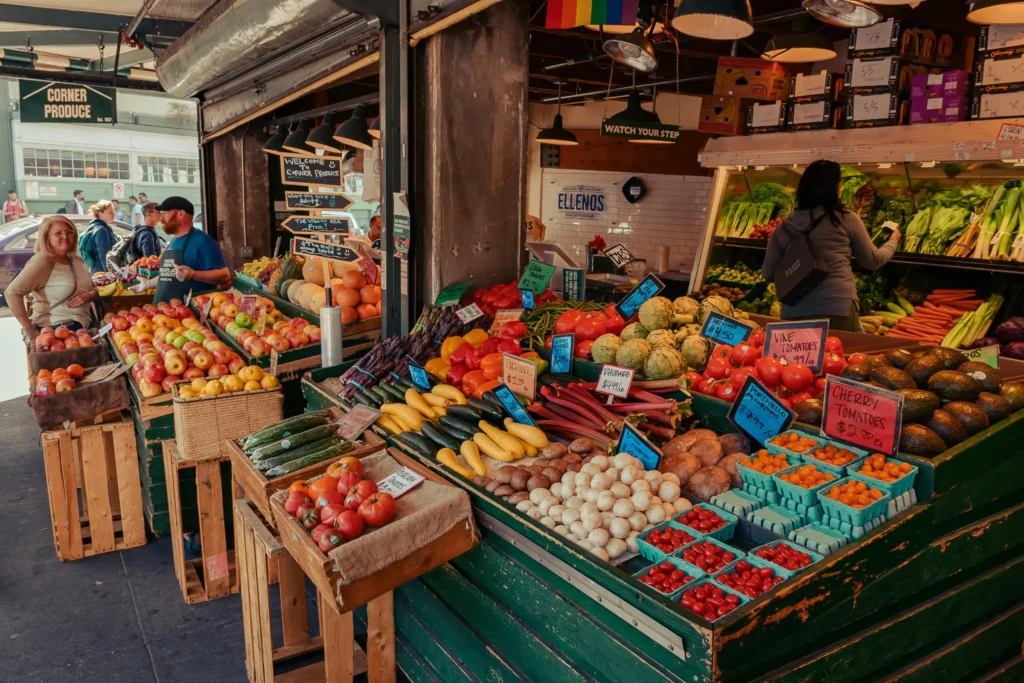Food hacks for expats in Spain
Food hacks for expats in Spain
Food hacks for expats in Spain
Food hacks for expats in Spain
25. September 2024
Feedback: 0
As an expat, exploring the local cuisine is often one of the most exciting adventures, but it can also be a challenge when you miss certain flavors or dishes from home. Especially in a country like Spain, renowned for its Mediterranean cuisine, you might wonder: how can you prepare dishes using local ingredients that remind you of home? And how can you ensure your dog also enjoys regional ingredients in their treats? Here are some useful “food hacks” for expats to help you make the most of both worlds.
- Spanish Ingredients, German Dishes: The Trick with Flavors
- Utilizing Regional Specialties: Serrano Ham in Stews
- Baking with Olive Oil: How to Achieve the Perfect Cake
- Dog Treats Made with Local Ingredients: A Feast for Your Four-Legged Friend
- Experiment with Spices: Paprika, Saffron, and More
- Exploring Local Markets: The Secret to Fresh Ingredients
- Bringing a Piece of Home: Stock from Germany
- Conclusion: The Perfect Blend of German and Spanish Cuisine
Spanish Ingredients, German Dishes: The Trick with Flavors
Upon shopping in Spain, you will immediately notice the incredible variety of fresh produce. Fruits, vegetables, seafood, and meats are abundant and often at much lower prices than in Germany. But what if you’re craving a classic German dish like potato salad or rouladen?
Good news is that with a few small adjustments, you can easily recreate many German dishes using Spanish ingredients. For instance, instead of searching for German pickles for your potato salad (which may not even be available), you can use Spanish “pepinillos” (small pickled cucumbers). They are a bit sweeter, but with a squeeze of lemon juice and a pinch of sugar, you can beautifully adjust the flavor.
Another example is Sauerbraten. In Spain, you can find excellent red wine and wine vinegar to create a flavorful marinade, even if you can’t locate the traditional ingredients. The Spanish wine adds a unique touch to the dish, while the vinegar enhances the flavors even further. This way, your rouladen may have even more depth of flavor!
Utilizing Regional Specialties: Serrano Ham in Stews
When you venture into Spanish cuisine, you quickly encounter regional classics like Serrano ham, chorizo, and paprika. These ingredients not only shine in Spanish dishes but can also add a Mediterranean twist to German recipes.
Imagine making a hearty German lentil stew. Instead of using bacon or Mettwurst, you could chop up some Serrano ham and chorizo for the stew. This gives it a spicy, smoky flavor that perfectly complements the lentils. Or how about a potato soup? Adding a few slices of chorizo transforms it into a wonderful blend of German and Spanish cuisine.
Baking with Olive Oil: How to Achieve the Perfect Cake
In Germany, baking often involves using butter or margarine, but in Spain, olive oil takes center stage in the kitchen. Don’t worry; in fact, olive oil can also work wonders in baking when it is used correctly. Many German cake and pastry recipes can easily be adapted by substituting butter with high-quality olive oil. It’s important to use a mild olive oil that doesn’t have a strong flavor.
For pound cakes or muffins, you can replace the butter with olive oil in a 1:1 ratio. This not only makes the cake moister, but it also makes it healthier, as olive oil is rich in healthy fats. Especially in the heat of a Spanish summer, you’ll appreciate the difference: olive oil helps prevent the cake from drying out too quickly.
Dog Treats Made with Local Ingredients: A Feast for Your Four-Legged Friend
Of course, Bailey can’t miss out on the culinary adventures either! In Spain, there are many fresh and natural ingredients that are perfect for homemade dog snacks. For instance, Bailey loves the sweet Spanish carrots and zucchini that we regularly mix into her treats.
Here’s a simple recipe for dog treats:
◉ 1 large Spanish carrot (grated)
◉ 1 zucchini (grated)
◉ 100 g oats
◉ 1 egg
◉ A splash of olive oil
Mix all the ingredients well and form small cookies. Bake at 180 degrees Celsius (about 350 degrees Fahrenheit) for approximately 20 minutes until golden brown. Your dog will love the fresh taste, and you can be sure you’re using only the best from the region.
Another great treat for dogs is sweet potato. It’s abundant in Spain and packed with nutrients. When sliced thin and dried in the oven, you have a healthy snack for your dog that is also easily digestible.
Experiment with Spices: Paprika, Saffron, and More
Spain is renowned for its aromatic spices, especially paprika and saffron. These spices are excellent for adding a special touch to German dishes. A bit of paprika in goulash or saffron in a simple potato soup can give the dish a whole new direction.
A special highlight is also the use of Spanish herbs like rosemary or thyme, which you can incorporate into many dishes. These herbs often grow wild in Spain, so you can even buy them fresh and fragrant at local markets. They not only complement meat dishes but also pair well with vegetables and even desserts if you’re adventurous enough to try something new.
Exploring Local Markets: The Secret to Fresh Ingredients
When you live in Spain, you’ll quickly discover that the local markets are a paradise for fresh ingredients. Visiting a weekly market allows you to find not only the best products from the region but also to try out new recipes. Instead of always going to the supermarket, you should sample the fresh olives, fish, and vegetables available at the market.
💡 Another Tip 💡
Many market stalls also offer regional specialties that you might not find in the supermarket. Let the variety inspire you and ask the vendors for their best tips and tricks.
Bringing a Piece of Home: Stock from Germany
Despite all the exciting culinary discoveries in Spain, there are surely a few German products you might miss. It’s great if you can bring a small supply from Germany. Spices, certain types of flour, and even sauerkraut can be stored well and provide comfort on days when you long for German cuisine.
If you’re particularly craving German foods, there are even some international supermarkets in Spain that offer German products. Many ingredients can also be ordered online when you’re in the mood for a classic German dinner.
Conclusion: The Perfect Blend of German and Spanish Cuisine
Art of expat cooking lies in combining the best of both worlds. With a little creativity and the right ingredients, you can blend the flavors of your homeland with the fresh, regional products of Spain. Whether you’re recreating your favorite dishes from Germany or embarking on new culinary adventures, discovering the local cuisine will enrich your daily life. And the best part? Your dog will also benefit from the fresh and healthy ingredients!
We hope these tips help you master your expat life even better! Do you have your own experiences or further recommendations on the topic of moving abroad? Feel free to leave us a comment! Share this post with others who could benefit from these tips, and stay tuned for more inspiration from life as an expat.
Your Steffi & Marius

Wir sind zwei deutsche Auswanderer und auf emigres-life nehmen wir Dich mit auf unsere Reise in ein neues Leben.
In unserem Projekt schwingt das Pendel meist in Richtung stressig oder chaotisch und weniger in Richtung tiefenentspannt.
Wenn du also wissen willst, in welches Fettnäpfchen wir als nächstes treten oder welche Hürden vor uns liegen und wie wir sie überwinden, dann bleib dran.
Nächster Blogpost
Fallas in Valencia: Tradition, Kunst und Spektakel



 Pin it!
Pin it!

